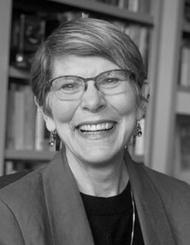-
Not Exactly Lying: Fake News and Fake Journalism in American History
Price $28.00Paperback
In Stock

Virtual Event: Andie Tucher
presenting
Not Exactly Lying:
Fake News and Fake Journalism
in American History
in conversation with KATHY FORDE
DateApr
6
Wednesday
April 6, 2022 7:00 PM ET |
LocationJoin our online event (or pre-register) via the link in the event description.
|
Tickets
Free - $5 contribution suggested at registration
|
Harvard Book Store's virtual event series welcomes historian and journalist ANDIE TUCHER for a discussion of her newest book Not Exactly Lying: Fake News and Fake Journalism in American History. She will be joined in conversation by KATHY FORDE—professor of journalism history at University of Massachusetts.
Contribute to Support Harvard Book Store
While payment is not required, we are suggesting a $5 contribution to support this author series, our staff, and the future of Harvard Book Store—a locally owned, independently run Cambridge institution. In addition, by pre-ordering a copy of Not Exactly Lying on harvard.com, you support indie bookselling and the writing community during this difficult time.
About Not Exactly Lying
Long before the current preoccupation with “fake news,” American newspapers routinely ran stories that were not quite, strictly speaking, true. Today, a firm boundary between fact and fakery is a hallmark of journalistic practice, yet for many readers and publishers across more than three centuries, this distinction has seemed slippery or even irrelevant. From fibs about royal incest in America’s first newspaper to social-media-driven conspiracy theories surrounding Barack Obama’s birthplace, Andie Tucher explores how American audiences have argued over what’s real and what’s not―and why that matters for democracy.
Early American journalism was characterized by a hodgepodge of straightforward reporting, partisan broadsides, humbug, tall tales, and embellishment. Around the start of the twentieth century, journalists who were determined to improve the reputation of their craft established professional norms and the goal of objectivity. However, Tucher argues, the creation of outward forms of factuality unleashed new opportunities for falsehood: News doesn’t have to be true as long as it looks true. Propaganda, disinformation, and advocacy―whether in print, on the radio, on television, or online―could be crafted to resemble the real thing. Dressed up in legitimate journalistic conventions, this “fake journalism” became inextricably bound up with right-wing politics, to the point where it has become an essential driver of political polarization. Shedding light on the long history of today’s disputes over disinformation, Not Exactly Lying is a timely consideration of what happens to public life when news is not exactly true.
Praise for Not Exactly Lying
"In this artfully written account, Andie Tucher offers a sweeping history of misinformation and the American press. Most strikingly, Not Exactly Lying reveals that the present panic surrounding so-called “fake news” has missed the point: It’s the modern profusion of “fake journalism”―the appropriation of journalistic standards to serve up puffery, propaganda, and hyperpartisan fare―that is more concerning for the future of media and public life." —Seth C. Lewis, Shirley Papé Chair in Emerging Media at the University of Oregon
"Not Exactly Lying provides a beautifully written and deeply researched history of “fake news” and “fake journalism” in the United States, offering deep context for understanding our contemporary democratic crisis and the role of journalism in that crisis. Tucher takes on one of the most urgent issues of our day." —Kathy Roberts Forde, coeditor of Journalism and Jim Crow: White Supremacy and the Black Struggle for a New America
"In exploring the various ways that fakes and falsehoods have made their way to the public as “journalism” and “news,” Tucher follows a number of trends: the evolving internal conventions of and boundaries around journalism, the introduction of new media technologies, the waxing and waning of partisan influence on and control over key news outlets, and changing public appetites for news. Not Exactly Lying shows that the enemy of good journalism is not slant but untruth." —Michael Stamm, author of Dead Tree Media: Manufacturing the Newspaper in Twentieth-Century North America

Harvard Book Store’s award-winning event series continues online! Named "Best of Boston: 2020 Best Virtual Author Series" and "2021 Best Virtual Author Series" by Boston magazine.
(617) 661-1515
info@harvard.com
Media Inquiries
mediainquiries@harvard.com
Accessibility Inquiries
access@harvard.com
Classic Totes
Tote bags and pouches
in a variety of styles,
sizes, and designs, plus mugs, bookmarks, and more!
Shipping & Pickup
We ship anywhere in the U.S. and orders of $75+ ship free via media mail!
Learn More »Noteworthy Signed Books: Join the Club!
Join our Signed First Edition Club (or give a gift subscription) for a signed book of great literary merit, delivered to you monthly.
Learn More »










